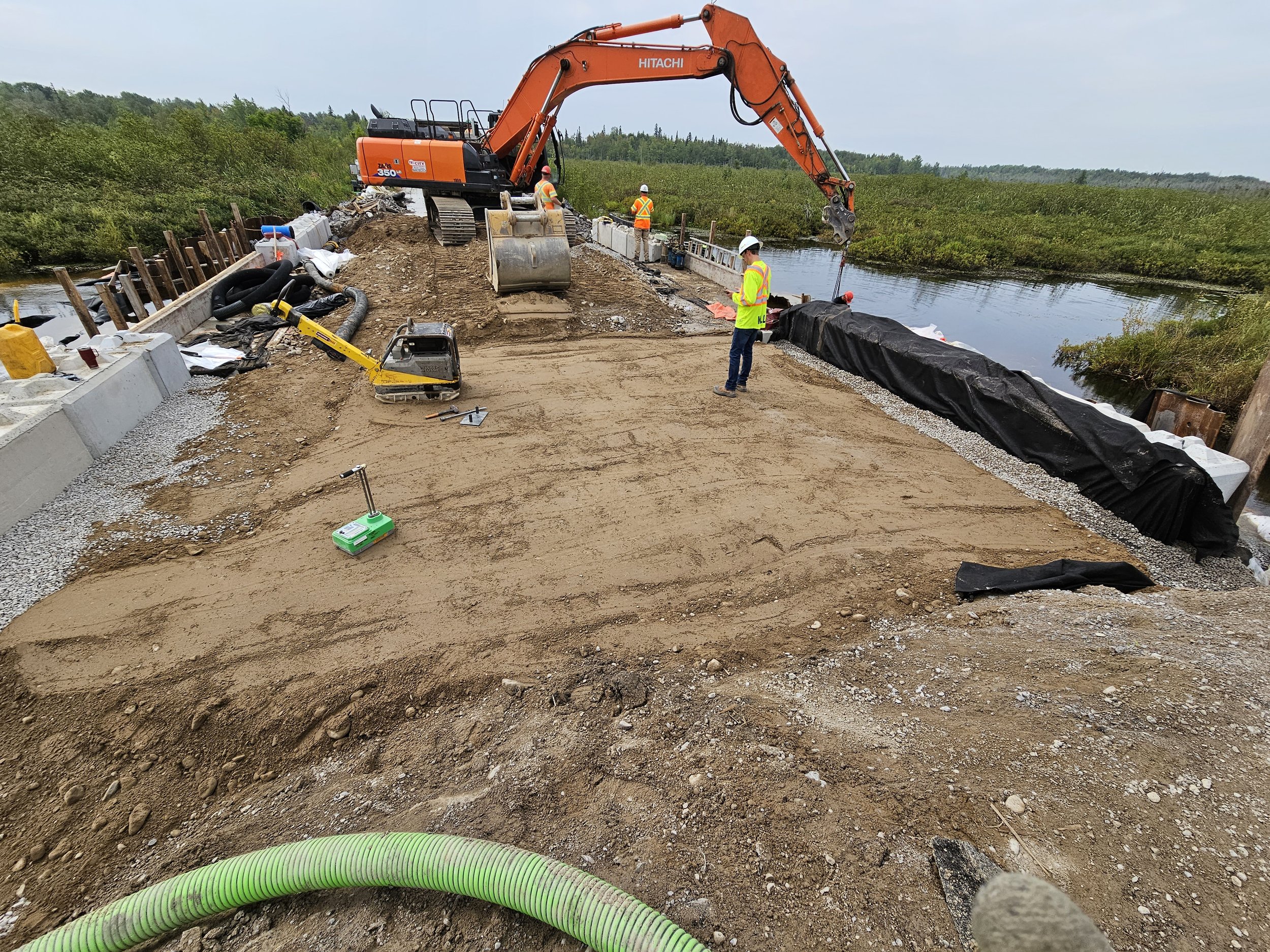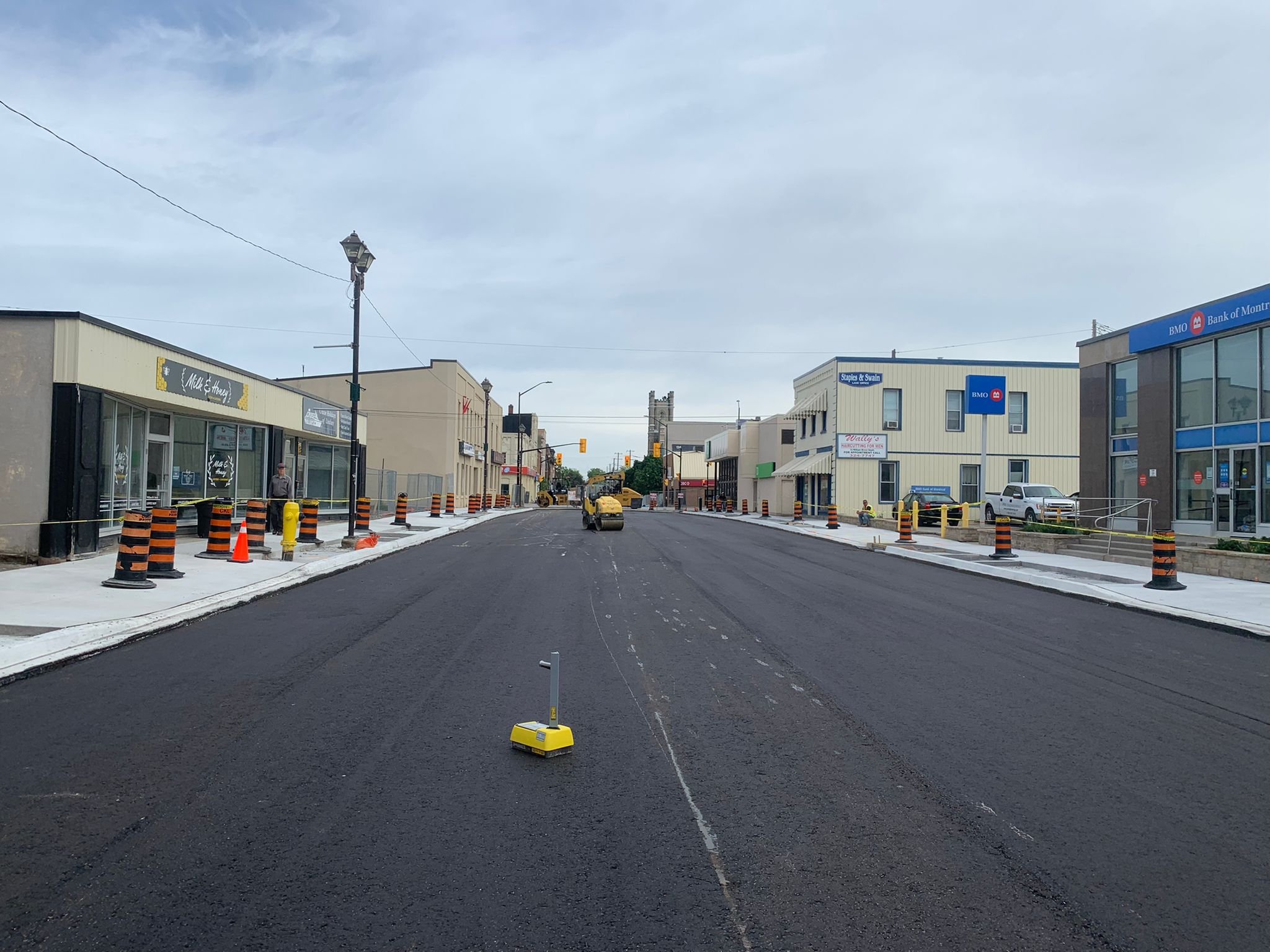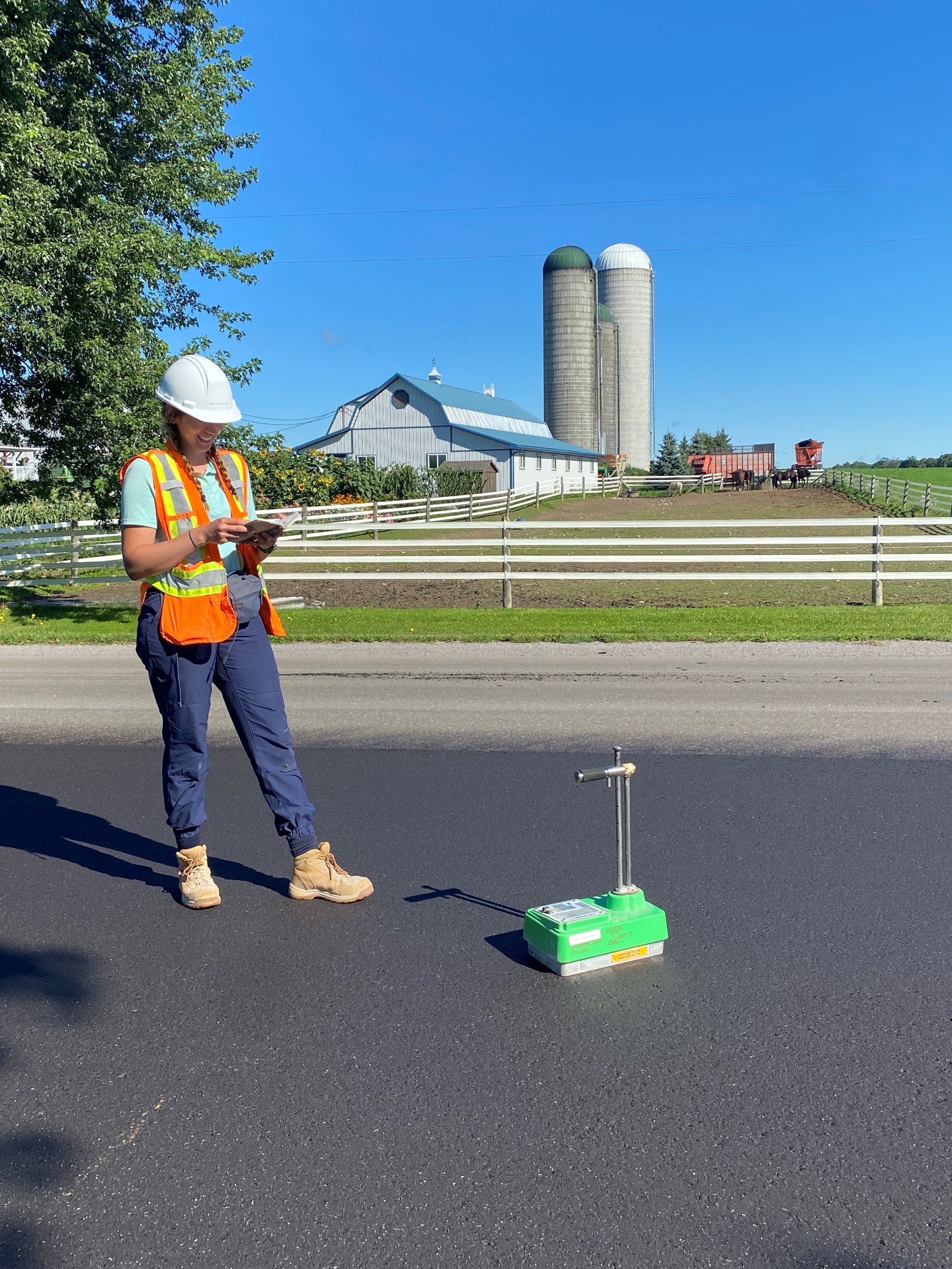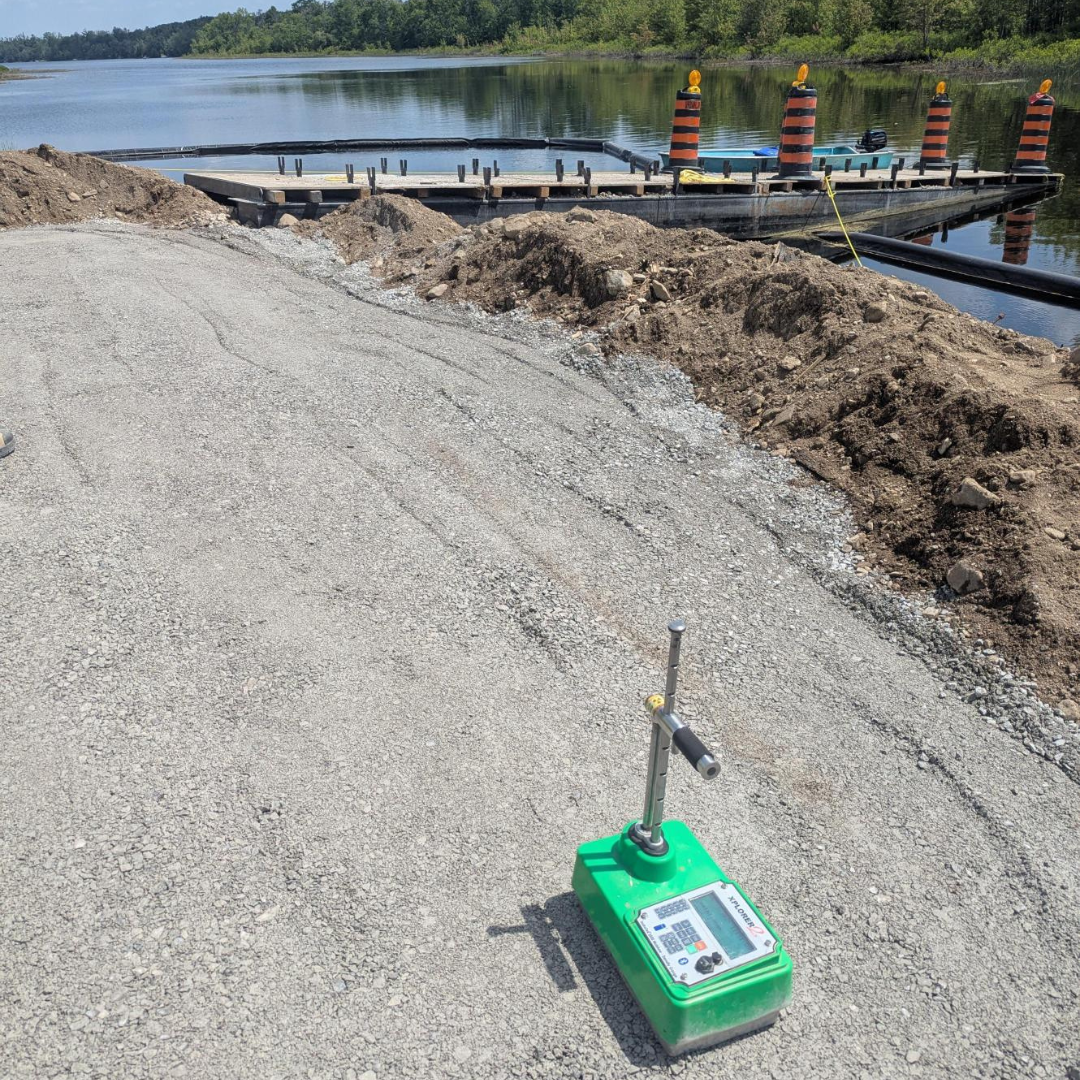
COMPACTION TESTING
OVERVIEW
Soil and asphalt compaction testing is a crucial process in civil engineering and construction, ensuring the stability and durability of various structures or pavement structures. By subjecting soils and asphalt materials to standardized compaction testing, engineers can verify that optimal density, moisture content and/or asphalt content are achieved. Whether being completed to ensure compliance with design requirements or strictly for peace of mind we help ensure construction efforts are adequate for the proposed design life.
KEY BENEFITS:
STRUCTURAL STABILITY
Verifies that soil layers are compacted to provide adequate strength and load-bearing capacity.
REDUCED SETTLEMENT
Helps prevent differential movement and surface cracking by minimizing future ground shifting.
ENHANCED LONGEVITY
Supports the long-term durability of pavements, foundations, and other infrastructure elements.
CONSTRUCTION QUALITY CONTROL
Confirms that contractors meet compaction specifications and follow approved construction practices.
ENVIRONMENTAL PROTECTION
Reduces the potential for water infiltration, erosion, and soil degradation.
WHAT COMPACTION
TESTING TELLS YOU
DRY DENSITY
The maximum achievable density of soil or aggregate under controlled compaction
MOISTURE CONTENT
Optimal water level needed for effective compaction and strength
DEGREE OF COMPACTION (%)
Percentage of field compaction relative to maximum lab density (Proctor test)
UNIFORMITY OF COMPACTION
Consistency of compaction across the tested area or lift
COMPLIANCE WITH SPECS
Confirms materials meet project requirements for strength and stability
RELATED CONCRETE FOUNDATION INSPECTION SERVICES
ASPHALT INSPECTION
When conducting an asphalt inspection, our project supervisor reviews the condition of the paving onsite and identifies any non-conforming work, anticipating problems where possible, and recommending corrective action.
SUBGRADE CONSTRUCTION INSPECTION
PRI Engineering’s subgrade inspection ensures that the best practices for subgrade preparation are followed to help increase the structural capacity of the soil.
CONCRETE FOUNDATION INSPECTION
Our concrete foundation inspection services covers as much of the installation as needed. Starting with verification of raw materials, then the placement and tension of rebar, form, dimensions and placement of the concrete, and ending with the final inspection of the curing and finishing operations.








